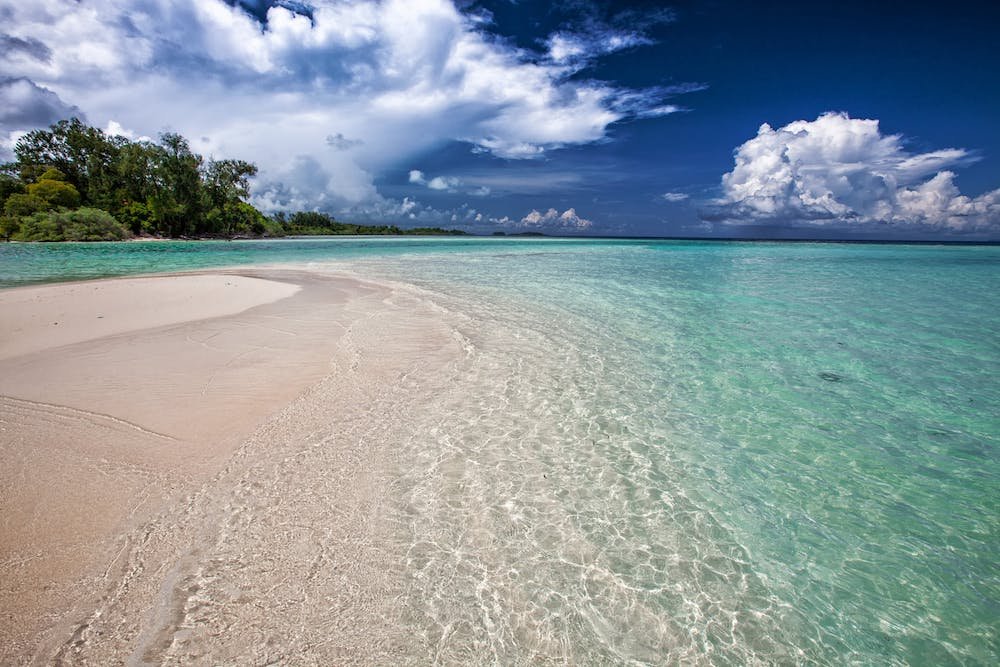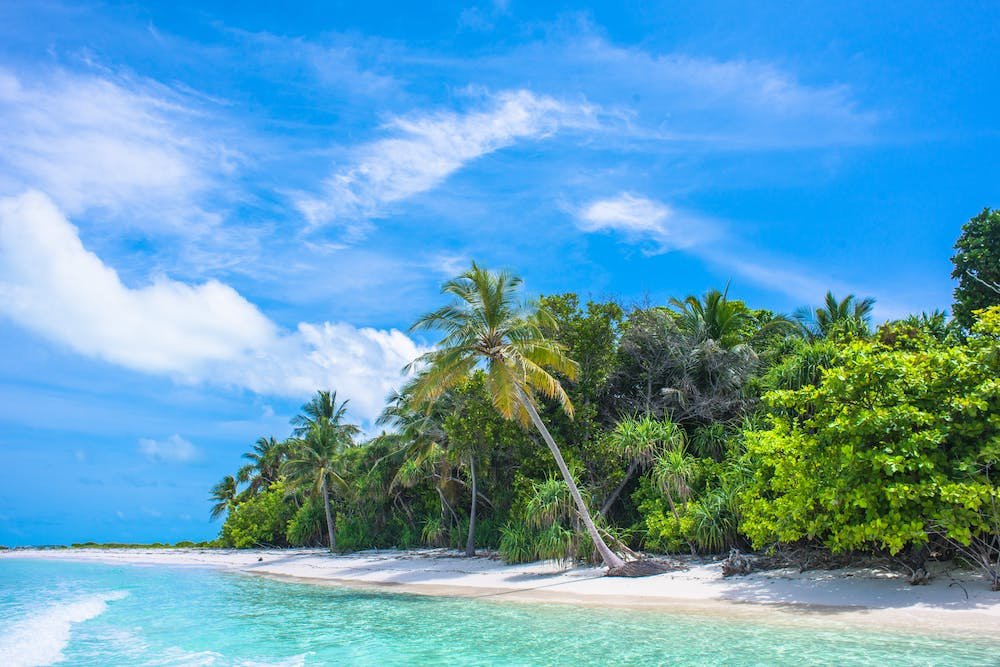
Private island rentals have surged in popularity, capturing the imagination of those seeking an unparalleled and exclusive getaway.
The allure of pristine beaches, crystal-clear waters, and the feeling of utter seclusion has fueled a growing trend in choosing private islands as the ultimate destination for vacations and events alike.
As more individuals and groups embrace this unique travel experience, the importance of meticulous preparation becomes paramount.
Unlike conventional holidays and accommodations, private island rentals demand a thorough approach to ensure a seamless and unforgettable stay.
This article delves into the essential aspects of preparing for a private island rental, serving as a comprehensive guide for those thinking of booking a private island for their next holiday.
We will navigate the important aspects of the required documentation, shedding light on everything from travel visas to travel insurance policies.
1. Travel Visa

Understanding Visa Requirements for International Private Island Rentals
Private island rentals often transcend borders, necessitating a clear grasp of the visa requirements imposed by the destination country.
The specific regulations can vary significantly, ranging from visa-free entry to detailed application processes.
It’s vital to research and comprehend the visa policies relevant to your chosen country, ensuring compliance and preventing any unexpected hurdles during your travel.
Navigating the Visa Application Process
The visa application process can be intricate, varying based on the destination’s regulations.
To ensure a seamless journey to your private island paradise, consider the following steps:
- Early Research and Planning:
Conduct thorough research well in advance to identify the specific visa requirements for your chosen destination. Take note of application timelines, processing fees, and any supporting documentation needed. - Complete and Accurate Documentation:
Prepare all necessary documents meticulously, including proof of accommodation (such as your private island rental reservation), flight details, and financial statements. Accuracy and completeness play a pivotal role in the success of your visa application. - Consulate or Embassy Visit:
If required, schedule a visit to the consulate or embassy of the destination country. Engage with visa officers to clarify any queries and ensure you have a comprehensive understanding of the application process. - Application Submission:
Submit your visa application well within the specified timeframe, paying close attention to guidelines and requirements. Include all necessary fees and documentation to expedite the processing of your application. - Follow-Up and Confirmation:
Keep track of your application status and promptly respond to any requests for additional information. Once approved, double-check the details on your visa for accuracy. - Communication with Private Island Host:
Maintain open communication with your private island host or resort during the visa application process. They may provide valuable insights or assistance to ensure your accommodation aligns seamlessly with your travel plans.
2. Current and Valid Passport

The Importance of Having a Passport with Sufficient Validity
Your passport is not merely an identification document; it is your ticket to exploration.
Before embarking on a private island rental adventure, confirm that your passport has adequate validity.
Many countries require your passport to remain valid for at least six months beyond your planned departure date.
Ensuring Passport Validity During the Planned Stay
Beyond meeting the minimum validity requirements, it’s crucial to ensure that your passport remains valid throughout your entire stay on the private island.
Unforeseen circumstances or changes in travel plans may extend your visit, and having a valid passport for the entire duration is essential to avoid disruptions to your experience.
Making Photocopies of the Passport
Mitigate the impact of potential passport loss or theft by taking proactive measures.
It is strongly recommended that traveler’s make clear photocopies of your passport’s main page and any relevant visa stamps.
These copies should include essential details such as your photo, passport number, and expiration date.
Having Copies in Case of Loss or Theft
In the unfortunate event of passport loss or theft, having photocopies proves invaluable. These copies can expedite the replacement process at consulates or embassies, serving as a reference for reissuing a new passport.
It is encouraged that travelers keep physical copies separate from the original and consider having digital copies stored securely in cloud storage for easy access.
3. Driver’s License

Additional Identification for Travel and Local Activities
While your passport remains the primary form of international identification, a driver’s license serves as a valuable secondary identification document.
It can be particularly useful for local activities, such as renting vehicles or participating in specific excursions on the private island.
Meeting Any Driving Requirements Specific to the Country
Some private islands may offer the option for visitors to explore the local surroundings independently.
In such cases, meeting any driving requirements specific to the country is crucial.
Whether it involves obtaining a local driving permit or adhering to specific regulations, ensure that travelers are well-informed about the necessary steps.
4. Travel Insurance Policy

Private island rentals epitomize exclusivity and tranquility, but comprehensive travel insurance is your safety net for unforeseen circumstances.
Understanding the intricacies of your travel insurance policy is as essential as packing your bags.
Let’s delve into the vital aspects of securing a robust travel insurance policy:
The Importance of Comprehensive Travel Insurance
You must invest in comprehensive travel insurance.
Private island rentals, often in remote or exclusive locations, may pose unique challenges in terms of medical emergencies, trip cancellations, or unexpected interruptions.
A well-rounded travel insurance policy provides financial protection and peace of mind, ensuring that you can fully enjoy your private island escape.
Understanding Policy Coverage and Limitations
Scrutinize your travel insurance policy to understand both the coverage and limitations.
It’s important to look at key elements such as:
- Medical Coverage:
Clarify the extent of medical coverage, including emergency medical expenses and evacuation. - Trip Cancellation/Interruption:
Outline the circumstances under which the insurance covers trip cancellations or interruptions. - Travel Delay and Baggage Coverage:
Highlight coverage for travel delays and loss or damage to baggage. - Adventure Activities:
If your private island vacation involves specific adventure activities, ensure these are covered by the policy. - COVID-19 Considerations:
Given the evolving landscape, explain any COVID-19-related coverage and restrictions, including quarantine-related expenses.
5. Island Resort Reservation

Significance of the Confirmation Email
The confirmation email is more than a digital receipt; it’s your golden ticket to paradise.
It serves as a binding agreement between you and the island resort, providing assurance that your chosen dates and accommodations are secured.
Treat the confirmation email with utmost importance, as it often contains essential details and instructions for a smooth check-in process.
Highlight the Important Reservation Details
- Reservation Dates:
Emphasize the importance of double-checking the accuracy of reservation dates. Any discrepancies should be addressed promptly with the resort. - Accommodation Details:
Ensure that the confirmation includes specifics about your chosen accommodation, such as room type, amenities, and any special requests. - Contact Information:
The confirmation should provide comprehensive contact information for the resort. This includes a general contact number, email address, and, if available, the details of a dedicated concierge or guest services representative.
Reading and Understanding the Resort’s Terms and Conditions
The terms and conditions of your island resort reservation hold key information for your stay. It is highly recommended to read, comprehend and highlight these terms to avoid misunderstandings or surprises during your visit.
Key points to highlight include:
- Cancellation Policies:
Make sure to read if there are any penalties or restrictions associated with canceling or modifying your reservation. - Payment Details:
Ensure that travelers understand the payment schedule, accepted forms of payment, and any pre-authorization requirements. - Check-In/Check-Out Procedures:
Provide an overview of the resort’s check-in and check-out procedures to streamline the arrival and departure process. - Additional Fees or Charges:
Mention any potential additional fees or charges that might apply during the stay, such as resort fees or taxes.
6. Main Flight Ticket

Airlines have specific requirements related to your flight ticket that, if overlooked, can lead to unwarranted hiccups.
Here’s what you need to consider:
- Flight Ticket Confirmation:
Ensure you have the confirmed ticket for your main flight. Double-check the accuracy of passenger names and flight details. - Digital Copies:
Make digital copies of your flight ticket. Having a digital version on your phone or in cloud storage ensures you can access it quickly if needed. - Flight Dates and Times:
Double-check that the flight dates align with your planned private island rental dates. Ensure the times are convenient for a seamless transition from flight to island paradise. - Connecting Flights (if applicable):
If your journey involves connecting flights, confirm the layover durations and any necessary transit details. Give yourself ample time between connecting flights to avoid unnecessary stress. - Airport Information:
Verify the departure and arrival airports. In some cases, private islands may have specific arrangements for arrivals, and knowing this information beforehand can enhance your overall travel experience.
7. Banking documents, foreign currency, and travel credit cards

Getting stuck without access to money abroad can leave you in dire straits. Before you travel, let your bank know where you’re going and organise access to foreign currency.
Check how much cash you can carry into your destination country and carry copies of your bank’s international contact details in case of emergencies.
If you are looking for ways to keep your money secure while travelling, a travel credit card can provide additional protection while avoiding foreign currency fees, overseas purchase fees, and international ATM fees.
8. International COVID-19 Vaccination Certificate

Obtaining and Presenting Vaccination Documentation
The first step toward your private island retreat involves obtaining and presenting valid COVID-19 vaccination documentation.
Consider the following recommendations:
- Complete Vaccination:
Ensure that you have completed the required dosage of the COVID-19 vaccine. Different destinations may have specific requirements, so research and comply with the regulations of your chosen private island. - Official Documentation:
Obtain an official and internationally recognized vaccination certificate. This typically includes details such as your name, date of birth, the vaccine received, and dates of administration. Many countries issue digital certificates, so familiarize yourself with the process of obtaining one. - Secure Digital Copies:
Make secure digital copies of your vaccination certificate. Storing these copies on your phone or in cloud storage provides a convenient way to present the information when required. Consider using secure apps recommended by health authorities for added convenience. - Physical Copy:
Print a physical copy of your vaccination certificate. While digital copies are widely accepted, having a hard copy as a backup can be beneficial in areas with limited connectivity or specific document preferences.
Compliance with International Travel Regulations
International travel regulations related to COVID-19 are dynamic and vary by destination.
To ensure a hassle-free private island experience, comply with the following international travel regulations:
- Destination-Specific Requirements:
Research and familiarize yourself with the COVID-19-related requirements of your chosen private island destination. These may include testing protocols, quarantine measures, or specific documentation beyond your vaccination certificate. - Timeliness of Documentation:
Be mindful of the validity period of your vaccination certificate. Some destinations may have specific requirements regarding the timeframe between your last vaccine dose and your arrival. Some countries require for you to prove you have a negative COVID-19 Test Result and/or Declaration. - Check with Airlines:
Contact your airline to confirm their specific requirements for presenting vaccination documentation. Airlines may have their own set of guidelines, and ensuring alignment with these guidelines can prevent last-minute complications. - Updates and Flexibility:
Stay informed about any updates to international travel regulations. The landscape is continually evolving, and flexibility in your plans may be necessary to accommodate changes in regulations.
9. Internal Flights, Airport Transfers, and Boat Transfer Tickets

Once you’ve arrived at your destination, the next phase of your private island retreat involves seamless internal transportation.
Coordinating internal flights, airport transfers, and boat transfers requires careful planning to ensure a smooth transition to your secluded paradise.
Keep Tickets and Understand Transportation Logistics to the Private Island
The key to a stress-free internal transportation experience lies in meticulous planning and understanding the logistics involved:
- Keep Tickets Handy:
Whether it’s a boarding pass for an internal flight or a ticket for a boat transfer, keep these documents easily accessible. Digital versions on your phone and physical copies as backups ensure readiness. - Understand Transportation Logistics:
Familiarize yourself with the transportation logistics from the arrival point to your private island. This includes understanding the sequence of internal flights, transfers, and any waiting periods.
10. Doctor’s Prescription Letter

Access to your prescribed medications is paramount, and a doctor’s prescription letter plays a pivotal role in ensuring uninterrupted supply and entry to the country you are visiting.
Consider the following steps:
- Comprehensive Medication List:
Create a comprehensive list of all the medications you currently take. Include details such as the medication name, dosage, and frequency. This list serves as a handy reference for both you and medical professionals in case of emergencies. - Consultation with Healthcare Provider:
Schedule a consultation with your healthcare provider well in advance of your private island getaway. Discuss your travel plans, and request a prescription renewal to cover the duration of your stay. Ensure that you have an adequate supply of medications to last the entire trip. - Special Considerations:
If you have specific medical conditions that may require immediate attention, discuss this with your healthcare provider. They can provide additional guidance on managing your health in a remote setting. - Translations if Needed:
If traveling to a destination where the primary language differs from your prescriptions, consider having the prescription translated. This can be particularly useful in facilitating communication with local medical professionals if necessary.
Facilitating Customs Clearance for Prescribed Medications
Navigating customs procedures with prescribed medications requires careful planning to prevent any delays or complications. Here’s how to facilitate a smooth customs clearance process:
- Doctor’s Prescription Letter:
Obtain a detailed doctor’s prescription letter for each medication you carry. The letter should include the following information:- Your name and date of birth.
- Details of the prescribing healthcare provider, including their contact information.
- Comprehensive information about each prescribed medication, including generic names, dosage, and frequency.
- Confirmation that the medications are necessary for your health and well-being.
- Translations if Needed:
If the doctor’s prescription letter is in a language not commonly understood at your destination, consider having it translated. This ensures that customs officials can easily comprehend the content of the letter. - Check Destination Regulations:
Research the specific regulations regarding the import of medications at your private island destination. Some countries have stringent rules, and being aware of these in advance can prevent unnecessary delays. - Carry Medications in Original Packaging:
Pack your medications in their original packaging. This not only helps customs officials identify the medications but also provides additional information about the prescription. - Declare Medications:
Declare your medications upon arrival, even if not explicitly required. This proactive step signals to customs officials that you are compliant with regulations and can streamline the clearance process.
Conclusion
Heading to your next private island retreat is a journey to tranquility, and the key to unlocking this serene haven lies in meticulous preparation and possessing the essential documents.
From securing travel visas and ensuring a valid passport to understanding emergency procedures and having a doctor’s prescription letter, each element contributes to a stress-free and enjoyable experience.
Thorough preparation is not merely a checklist but a safeguard for uninterrupted serenity, allowing you to immerse yourself fully in the beauty of your chosen private island paradise.

FAQ’s about travel documents
What travel documents are required for my next private island holiday?
To summarise everything in the above blog article, the most important documents required for your next private island holiday are a combination of these 10 documents:
- Travel Visa
- Current and Valid Passport
- Driver’s License
- Travel Insurance Policy
- Island Resort Reservation
- Main Flight Ticket
- Banking documents, foreign currency, and travel credit cards
- International COVID-19 Vaccination Certificate
- Internal Flights, Airport Transfers, and Boat Transfer Tickets
- Doctor’s Prescription Letter
What documents do I need to board an international flight?
The specific travel documents required can vary based on your destination and the nature of your trip, but generally, for international travel, you’ll need:
- Passport: A valid passport is a fundamental requirement for international travel. Ensure it has sufficient validity beyond your planned return date.
- Visa: Depending on your nationality and the destination country, you may need a visa. Research and obtain the necessary visa well in advance of your trip.
- Flight Tickets: Have your confirmed flight tickets ready. This includes both the main flight to your destination and any internal flights or connections.
- Travel Insurance: While not mandatory, travel insurance is highly recommended. It provides coverage for unexpected events, including medical emergencies, trip cancellations, or lost luggage.
- Proof of Vaccination: In some cases, especially considering global health concerns, you may be required to provide proof of vaccination, particularly for diseases such as COVID-19.
- Driver’s License or ID: It’s advisable to carry a secondary form of identification, such as a driver’s license or national ID card, especially for domestic travel or local activities.
- Prescription Letter: If you’re carrying prescribed medications, having a doctor’s prescription letter can facilitate customs clearance.
Which documents are checked at the boarding gate?
At the boarding gate, airline staff typically check the following documents:
- Passport: To verify your identity and ensure it matches the details on your ticket.
- Boarding Pass: Issued during the check-in process, your boarding pass is essential for gaining entry onto the aircraft.
- Visa: If required for your destination, airline staff may check your visa to ensure compliance with entry requirements.
- Proof of Vaccination: Depending on the destination and prevailing health regulations, you may be required to show your vaccination certificate.





